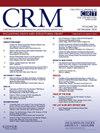Incidence and risk factors associated with stroke when utilizing peripheral VA-ECMO
IF 1.6
Q3 CARDIAC & CARDIOVASCULAR SYSTEMS
引用次数: 0
Abstract
Background
Mechanical circulatory support with veno-arterial extracorporeal membrane oxygenation (VA-ECMO) has brought forward a paradigm shift in the management of cardiogenic shock. Neurological complications associated with VA-ECMO represent a significant source of morbidity and mortality and serve as a limiting factor in its application and duration of use.
Methods
We performed a single-center retrospective case-control study of patients who developed stroke while managed with peripheral VA-ECMO from January 2018 to September 2022 at a quaternary center. We included consecutive patients above the age of 18 who were admitted to the cardiac intensive care unit and were managed with peripheral VA-ECMO. All patients who developed a stroke while on VA-ECMO were included in the case cohort, and compared to those who did not suffer stroke. Multivariable logistic regression was performed to identify risk factors associated with stroke on VA-ECMO. In-hospital outcomes were assessed out to 30 days.
Results
A total 244 patients were included in the final analysis, 36 (14.7 %) of whom developed stroke on VA-ECMO. Ischemic stroke was seen in 20 patients (55.6 %) whereas hemorrhagic stroke was seen in 16 patients (44.4 %). The use of P2Y12 antagonists (aOR 2.70, p = 0.019), limb ischemia (aOR 4.41, p = 0.002), and blood transfusion requirement (aOR 8.55, p = 0.041) were independently associated with development of stroke on VA-ECMO. Female sex trended towards statistical significance (aOR 2.19, p = 0.053) while age was not independently associated with development of stroke on VA-ECMO. There was no significant association between stroke development and outcomes of VA-ECMO duration, hospital length of stay, and all-cause mortality out to 30-days.
Conclusions
VA-ECMO carried a considerable risk of neurological complications. Mortality and duration of hemodynamic support was not associated with stroke risk. Awareness regarding stroke risk is imperative in facilitating early identification and management of ischemic and hemorrhagic stroke. Research involving clinical trials and multicenter studies are necessary to empower centers in mitigating this source of significant morbidity and mortality in patients on mechanical circulatory support.
使用外周 VA-ECMO 时中风的发生率和相关风险因素。
背景:静脉-动脉体外膜氧合(VA-ECMO)机械循环支持为心源性休克的治疗带来了模式转变。与 VA-ECMO 相关的神经系统并发症是发病率和死亡率的重要来源,也是限制其应用和使用时间的因素:我们进行了一项单中心回顾性病例对照研究,研究对象是2018年1月至2022年9月在一家四级中心接受外周VA-ECMO治疗时发生卒中的患者。我们纳入了连续入住心脏重症监护室并接受外周VA-ECMO治疗的18岁以上患者。所有在使用 VA-ECMO 期间发生中风的患者都被纳入病例队列,并与未发生中风的患者进行比较。进行多变量逻辑回归以确定与 VA-ECMO 中风相关的风险因素。对住院 30 天的结果进行了评估:共有 244 名患者纳入最终分析,其中 36 人(14.7%)在使用 VA-ECMO 时发生中风。缺血性中风有 20 例(55.6%),出血性中风有 16 例(44.4%)。使用 P2Y12 拮抗剂(aOR 2.70,p = 0.019)、肢体缺血(aOR 4.41,p = 0.002)和输血需求(aOR 8.55,p = 0.041)与 VA-ECMO 中风的发生独立相关。女性性别与 VA-ECMO 中风的发生有统计学意义(aOR 2.19,p = 0.053),而年龄与 VA-ECMO 中风的发生无独立相关性。中风的发生与VA-ECMO持续时间、住院时间和30天内的全因死亡率之间没有明显关系:结论:VA-ECMO具有相当高的神经系统并发症风险。结论:VA-ECMO具有相当高的神经系统并发症风险,死亡率和血液动力学支持持续时间与中风风险无关。对中风风险的认识对于促进缺血性和出血性中风的早期识别和管理至关重要。有必要开展临床试验和多中心研究,以增强各中心的能力,降低机械循环支持患者的发病率和死亡率。
本文章由计算机程序翻译,如有差异,请以英文原文为准。
求助全文
约1分钟内获得全文
求助全文
来源期刊

Cardiovascular Revascularization Medicine
CARDIAC & CARDIOVASCULAR SYSTEMS-
CiteScore
3.30
自引率
5.90%
发文量
687
审稿时长
36 days
期刊介绍:
Cardiovascular Revascularization Medicine (CRM) is an international and multidisciplinary journal that publishes original laboratory and clinical investigations related to revascularization therapies in cardiovascular medicine. Cardiovascular Revascularization Medicine publishes articles related to preclinical work and molecular interventions, including angiogenesis, cell therapy, pharmacological interventions, restenosis management, and prevention, including experiments conducted in human subjects, in laboratory animals, and in vitro. Specific areas of interest include percutaneous angioplasty in coronary and peripheral arteries, intervention in structural heart disease, cardiovascular surgery, etc.
 求助内容:
求助内容: 应助结果提醒方式:
应助结果提醒方式:


